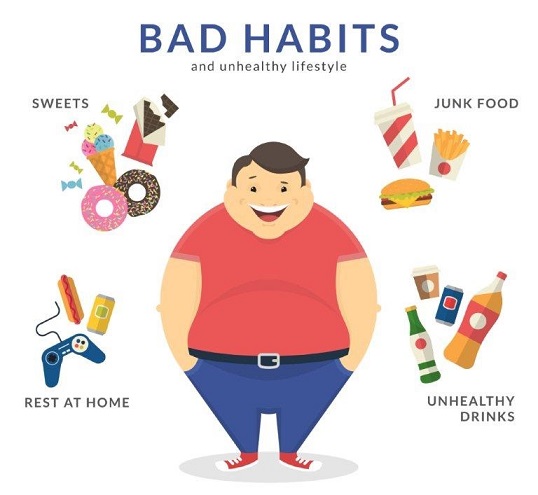Link Between Hepatitis C and Diabetes

In recent years, the intersection of the Hepatitis C virus (HCV) and diabetes has emerged as a critical area of concern within public health domains. According to a cross-sectional study utilising data from the NHANES, individuals with diabetes showed a significantly higher prevalence of HCV infection than those without diabetes, indicating a compelling need for targeted health strategies.
The correlation between diabetes and hepatitis reveals a bi-directional relationship with profound implications for patient care and medical research. This blog post explores the nuances of this connection and provides management strategies to navigate these co-occurring conditions.
What is the hepatitis C virus?
Hepatitis C, a bloodborne virus primarily transmitted through exposure to small quantities of blood, poses a significant public health challenge. This infection, caused by the Hepatitis C virus (HCV), can occur acutely or become a long-standing chronic condition. Risk factors for transmission include sharing needles, inadequate sterilisation of medical equipment, and, less commonly, through sexual contact.
The acute phase of HCV infection often goes unnoticed due to its typically asymptomatic nature or non-specific symptoms. In contrast, chronic HCV infection is defined by the persistence of the virus for more than six months, often leading to more serious health complications over time if left untreated.
Can hepatitis C cause diabetes?
Research has shown a connection between the Hepatitis C virus (HCV) and a higher chance of getting diabetes, especially type 2 diabetes, where the body struggles with managing blood sugar levels. Diabetes and hepatitis C affect each other. Hepatitis C can make it more likely to get diabetes, and having diabetes can cause liver problems from Hepatitis C worse.
The Hepatitis C virus can disrupt how the body handles insulin. Insulin helps sugar enter cells from the bloodstream, giving them the energy to work. When the virus interferes, the body’s cells don’t respond to insulin as they should. This condition is known as insulin resistance. Over time, insulin resistance can become serious enough to cause Type 2 diabetes, where the body’s blood sugar levels are consistently too high.
Additionally, hepatitis C can trigger the body’s immune system to act against itself. Hepatitis C can confuse the immune system, making it attack the cells in the pancreas that produce insulin. This can lead to Type 1 diabetes, where the body can’t make enough insulin to manage blood sugar levels.
What are the risks for diabetic patients with hepatitis C?
Patients living with both hepatitis C and diabetes face more health challenges than those dealing with either condition alone. Here are some specific risks:
- Liver Damage and Cirrhosis: Diabetic patients with Hepatitis C are more susceptible to cirrhosis, a condition caused by severe scarring in the liver tissue. This scarring is the result of long-term, chronic liver damage, and the coexistence of diabetes can accelerate the progression of this damage.
- Increased Risk of Liver Cancer: The dual diagnosis of diabetes and hepatitis can heighten the risk of hepatocellular carcinoma, a common type of liver cancer.
- Worsened Insulin Resistance: Hepatitis C can increase insulin resistance, where the body stops responding well to insulin. This becomes a challenge in managing diabetes.
- Increased Risk of Infections: Individuals with diabetes generally have a higher risk of infections. Combined with hepatitis C, which can impair the liver’s function, the body’s ability to fight infections may be further weakened.
- 5. Cardiovascular Issues: Both diabetes and hepatitis C can elevate the chances of developing cardiovascular problems like heart disease.
How to manage hepatitis C and diabetes?
Effectively managing hepatitis C and diabetes involves a proactive approach focused on regular health monitoring and lifestyle adjustments.
- Regular medical consultations: Stay in close contact with healthcare providers. This ensures that both hepatitis C and diabetes are being monitored and managed according to the latest medical guidance.
- Frequent Testing: Regular blood tests can help track liver health and blood sugar levels, allowing for timely adjustments in management plans.
- Healthy Diet: Eating a balanced diet low in processed foods and high in fibre can support liver health and blood sugar control.
- Exercise: Regular physical activity can improve insulin sensitivity and help maintain a healthy weight, reducing the strain on the liver.
- Avoid Alcohol: Alcohol can stress the liver, so avoiding it is crucial for those with hepatitis C and diabetes.
The link between hepatitis C and diabetes clearly increases health risks. Early testing and intervention for at-risk individuals are vital for managing both conditions effectively.
FAQs
1. Can someone with diabetes develop hepatitis C more easily?
People with diabetes aren’t more susceptible to contracting hepatitis C, but they may face more complications if infected.
2. Should people with hepatitis C change their diet?
Yes, a balanced diet can support liver health and manage blood sugar levels, which is beneficial for those with hepatitis C and diabetes.
3. Should people with hepatitis C and diabetes take special precautions during flu season?
They should follow their doctor’s advice on vaccinations and hygiene practices, as infections can complicate both conditions.















